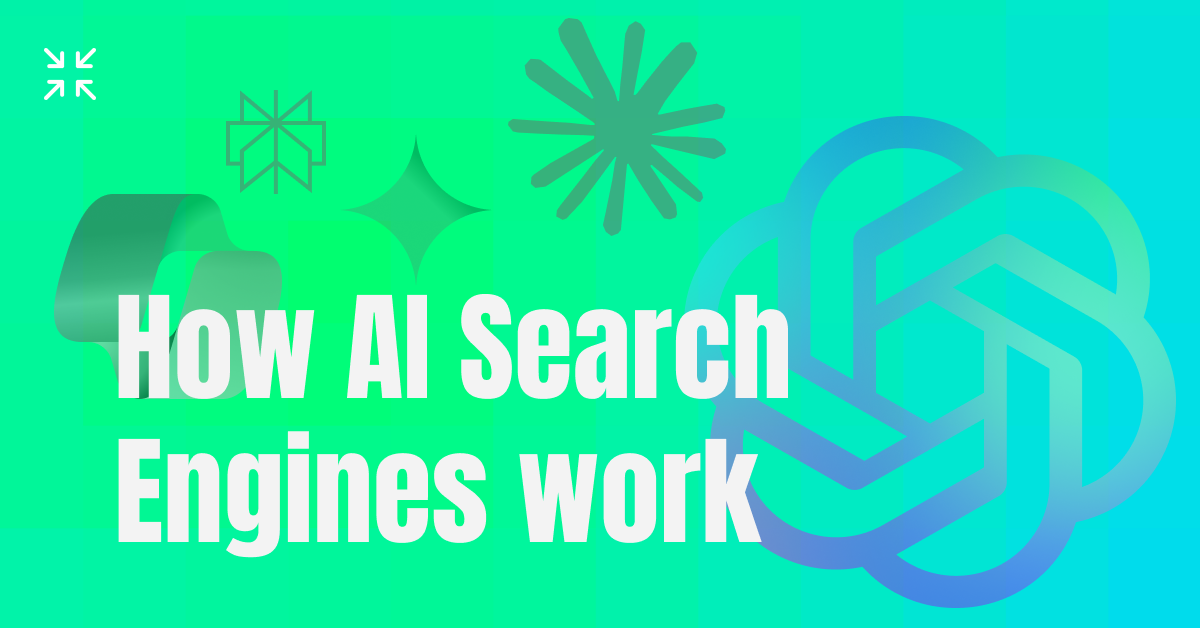AI Search Engines in 2025: How they work and how they Affect Brand Visibility.
- 24 Jun, 2025


Generative AI platforms like ChatGPT, Gemini, Perplexity AI, Claude, SearchGPT, Bing or Grok don’t just crawl and index content—they interpret, summarise, and repackage it uniquely. Some prioritise fast, fact-based answers. Others deliver in-depth, conversational insights or creative responses. To rank in AI-generated results, your content strategy must align with how each engine processes and presents information. This guide breaks down the top generative AI tools of 2025: ChatGPT, Claude, Gemini, Perplexity, Bing Copilot, and Grok, with a focus on their web access capabilities, real-time information handling, and how that impacts search, content visibility, and digital strategy.
Unlike traditional search engines that list links, AI search engines like Grok or Perplexity summarize, interpret, and personalize answers, often pulling from websites, blogs, or X posts. Some, like ChatGPT, rely on pre-trained data with optional web access, while others, like Perplexity, are built for real-time searches. This matters for two big reasons: Content Creators: To rank in AI answers (via GEO), you need to know which models access the web and how they pick sources.Businesses: For e-commerce, being cited by AI for queries like “best sustainable products” drives traffic and sales.
“AIO keywords trigger 849% more Featured Snippets and 258% more Discussions compared to non-AIO queries.” Louise Linehan, Ahrefs.
Each AI model has unique strengths, web access methods, and content preferences.
AI Search Engines Comparison Table (2025)
 AI comparison table showing six AI models (ChatGPT, Claude, Gemini, Perplexity, Bing Copilot, Grok) . Each model lists whether it has real-time web access, how it accesses the web (e.g., built-in browser, web search, Google Search integration), the type of data it uses (static, real-time, hybrid), and its best use case (such as research, summarization, search augmentation, fact-based research, enterprise search, or trend tracking).
Here’s a breakdown to help you tailor your GEO strategy for maximum visibility, especially for e-commerce.
AI comparison table showing six AI models (ChatGPT, Claude, Gemini, Perplexity, Bing Copilot, Grok) . Each model lists whether it has real-time web access, how it accesses the web (e.g., built-in browser, web search, Google Search integration), the type of data it uses (static, real-time, hybrid), and its best use case (such as research, summarization, search augmentation, fact-based research, enterprise search, or trend tracking).
Here’s a breakdown to help you tailor your GEO strategy for maximum visibility, especially for e-commerce.
Perplexity AI is built from the ground up as an AI-powered search engine, making it a go-to for fact-based queries like “latest sustainable fashion trends.”
Key Capabilities:
GEO Tips for Perplexity:
E-Commerce Example:
Gemini (formerly Bard) taps Google’s massive search infrastructure, making it ideal for queries needing fresh data, like “top tech gadgets 2025.” Key Capabilities:
GEO Tips for Gemini:
Knowing how each model accesses the web helps shape your content visibility strategy: Want to show up in AI summaries? Focus on platforms like Perplexity, Gemini, and Bing Copilot, which actively pull live data from websites. Want to future-proof your site? Structure your content with clear answers, bullet points, FAQs, and authoritative tone. This supports both SEO and GEO strategies. Want your brand in AI chats? Optimize for AI readability, not just keywords—write as if you’re answering a real person.
User Adoption and Behavior Statistics. In 2023, around 13 million U.S. adults used AI for search, expected to grow to 90 million by 2027. AI-generated overviews appear in 47% of Google search results, with 60% of searches completed without clicking through to other sites. Generative AI search is especially popular among Gen Z, who perform up to 31% of their searches on AI platforms like ChatGPT
AI search is evolving fast. What next?
“The game has shifted from link-building to voice-building. AI doesn’t need hyperlinks to understand authority, it reads context like humans do. Your digital footprint is now measured by who’s talking about you, not just linking to you. The secret? Being genuinely quotable beats being technically optimized. While everyone is creating AI slop, the winners will be those brave enough to stand out with original insights, unique opinions and bold perspectives. This isn’t just a shift in search; it’s a return to what actually matters: saying something worth repeating!” Britney Muller (AI Consultant, SEO Expert)
Not all AI models browse the web, but those that do are shaping the future of search. If you create online content, understanding how AI accesses and uses web data is essential to getting noticed and cited. Choose the right AI tool based on your needs—whether you require up-to-date facts, reliable summaries, or real-time insights. Don’t fall behind in the evolving digital landscape. Tools like AIBrandScan simplify tracking your brand’s score in AI-driven search results and help you improve your visibility and influence in AI-powered search engines.
Got questions about GEO - AI SEO for your e-commerce store or blog? Write to us hi@aibrandscan.com!